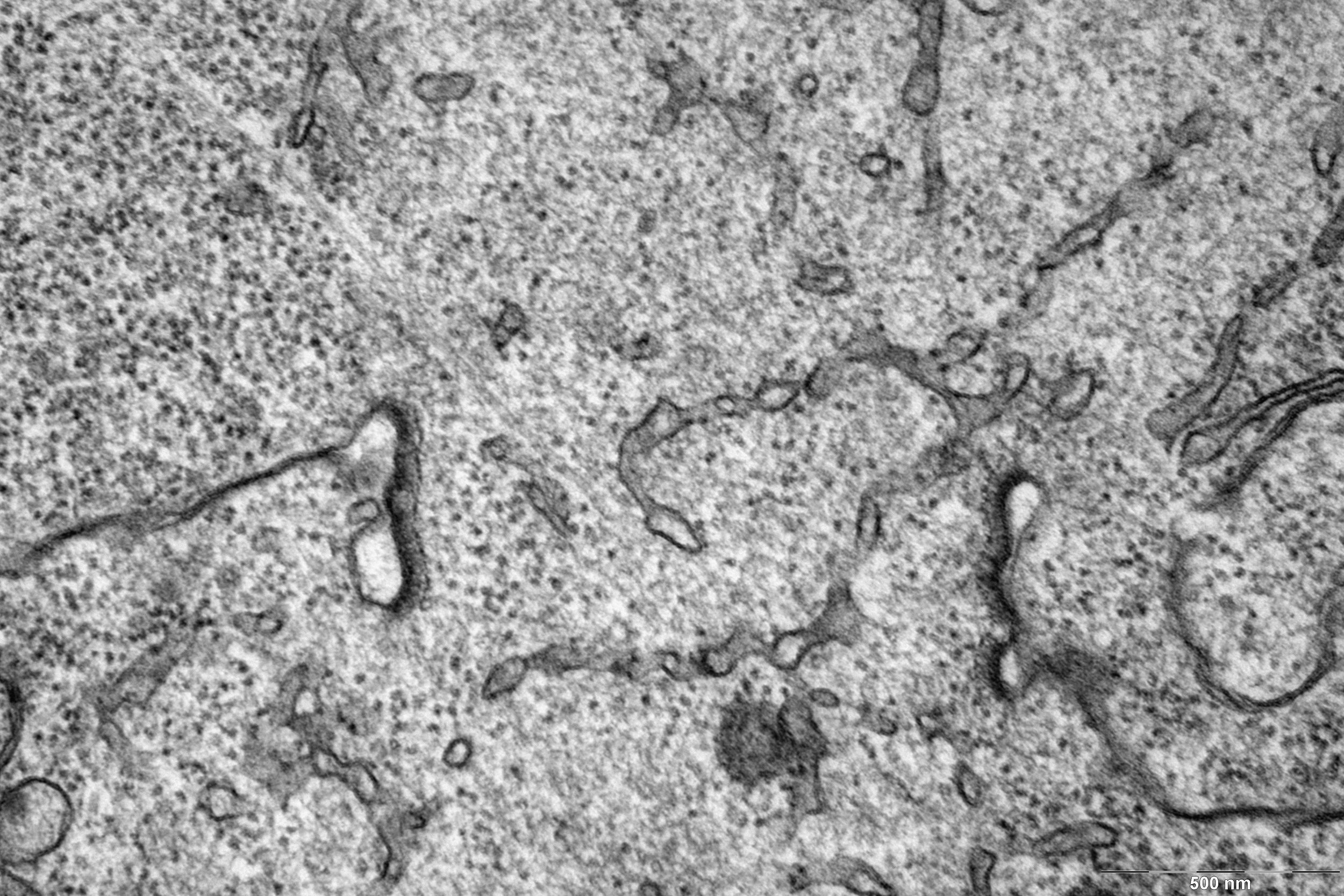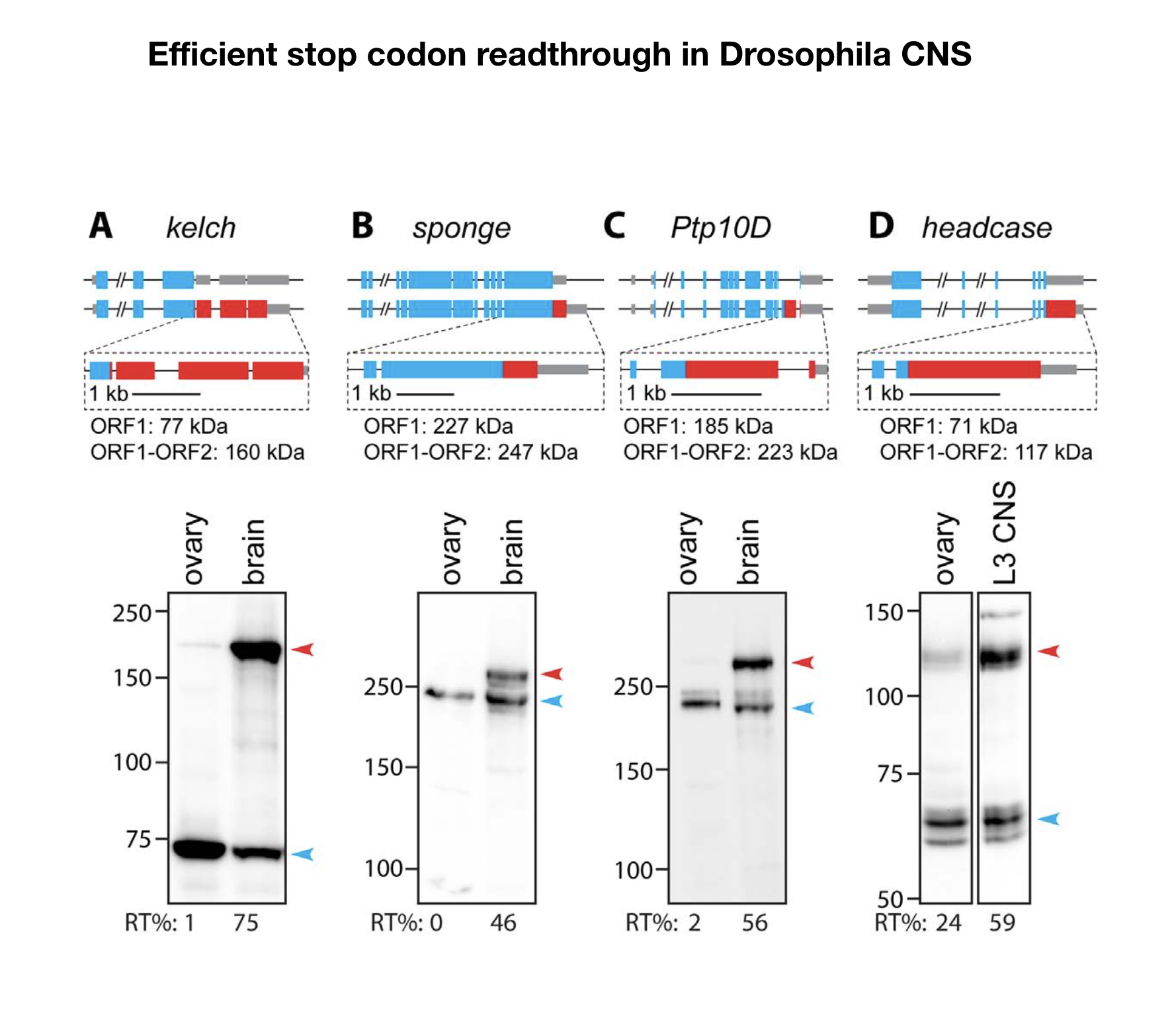
Investigating non-canonical mechanisms regulating gamete development and gene expression
We use genetics and cell biology approaches to study the critical mechanisms of incomplete cytokinesis and control of gene expression.
Two of the most fundamental processes in biology, cell division and protein translation, have dramatically different outcomes in specialized cells. We are currently investigating how animal germline cells fail to completely divide, and instead produce clusters of cells that communicate with each other through connecting bridges as they develop into gametes. We are also working to determine how and why genes that terminate translation normally in ovarian cells instead support efficient stop codon readthrough specifically in nerve cells of the central nervous system.
Incomplete cytokinesis
This project combines cell culture, molecular biology, genomics, and microscopy (so much microscopy!) approaches to study a range of model systems such as fruitflies, hydra, and mouse organoids. We are learning new information about the building blocks and mechanisms of programmed incomplete cell divisions during development, which result in a cyst of interconnected cells.
Tissue-specific stop codon readthrough
Some genes stop translating when they are “supposed to” while others ignore the stop codon and produce a longer protein. This phenomenon is called “readthrough” and it presents a mystery we are trying to solve. We have found a large number of genes that do readthrough in some tissues (especially the nervous system) but not in others (such as the ovary). Our team is working to understand how this happens and what the functional consequences are when readthrough goes astray.


